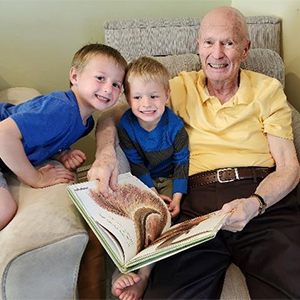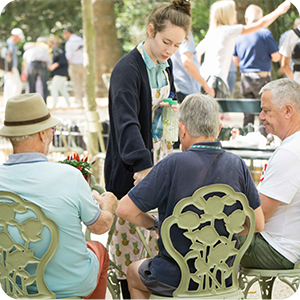
When my husband, Dennis, was first diagnosed as being in the early stages of Alzheimer’s disease, I was told to expect that he would gradually have more difficulty planning and initiating a healthy variety of activities, but that it would help his emotional health and mental abilities to interact with other people. Knowing this prompted me to take the initiative when it came to planning things we could do together, and to suggest things he could do on his own or with friends and family.

